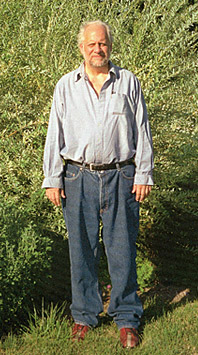The Political Garden
The Sunday Star, Easton Md, Sunday, February 10, 2008.
As an estimated 40 million US gardeners select their seeds to sow for fall harvest, the nation’s voters choose their candidates for November’s presidential election. Resonant horticultural metaphors are not coincidental, but spring from the roots of civilization. Gardens illustrate the processes of democratic governments, from the seasonal rhythms to the careful hand picking of the appropriate candidates from the many in the field. Do we have a southern or northern exposure? Do we prefer green, blue or red? Puffy or spiky? Sweet corn or savory beans? While one party displays a wide range of diverse tastes, such as the Republicans, the other shows two outwardly divergent candidates with profoundly similar and deep ideological roots.
In a garden, our choices must balance expectations with realities if the plants are to thrive. The site’s ecology, soil preparation, access to the wealth of water—all are phenomena as persistent as age-old domestic and foreign issues, and as devastating in their consequences in the hands of a lackadaisical gardener or an inattentive citizenry. Thus, as the garden mirrors the gardener, true democracy—and the choice of its leader—reflects the people. So how do we grow a president?
First is to eschew religion. Gardens neither appear nor disappear by magic, but gradually develop over time through tested knowledge and dedicated practice. In a democracy, outcomes are not faith-based. The ancestors who instructed us to garden successfully also taught us to keep the gods out of the garden. Religion serves to sort out fundamental personal struggles, but not to make the plants grow. A precious drop of empirical science yields more fertile public policy than the grandest theology.
Second, avoid the allure of novelty. The untried becomes as odious as the unknown, in the White House as in the garden. Four of the last five presidents have been governors, equally from both parties, leading at least one of our united states: a good start. Training is essential, but there is no substitute for experience. Authenticity and honesty are crucial. Beware of both handling and packaging. Look for the unmistakable qualities of candor and integrity, and beware of both the recently converted as well as the unripe. Green is not always good.
Third, disregard both race and gender. Martin Luther King, Jr. spoke for women as well as African-Americans—in fact, he spoke to all Americans when he praised the value of character and warned of the seduction of appearances. If a woman, or an ethnic or racial minority, possesses the inner qualities you seek, he or she should get your vote. A garden’s harvest depends on the quality of the seed and careful attention to the planting. The effects of the environment are negligible, including disasters. Similarly, a leader’s ability to withstand pressure is a matter of individuality, not identity.
Indeed, history plays the essential role in the success of a garden—past is prelude. Chance plays no role; like politics, gardening is a sober-minded business. Only by continuous testing is a garden—and a president—proved. As with locally elected officials, the nominees’ choices determine our selection. We choose, not based on their offers, but on our decisions. Therefore, let us match the prodigious wealth, staff resources and charisma of the candidates, with demands for their complete backgrounds and political records, and harness today’s new media—C-Span and the Internet among them—to sow our seeds of political will.
Finally, bear in mind that our political garden remains the Congress, where interests are cultivated and laws planted together, while the Supreme Court acts as the ultimate vineyard of truth. Nevertheless, the commander-in-chief must resolve, rather than compromise, and ultimately grasp the nettles of conflict, both foreign and domestic. Only through the Executive Branch do we speak with literally one voice. Only under the watchful eye and steady hand of the President will the nation flower into sound legislation and fruitful public policy.
The Sunday Star, Easton Md, Sunday, February 10, 2008.

“First is to eschew religion. Gardens neither appear nor disappear by magic, but gradually develop over time through tested knowledge and dedicated practice. In a democracy, outcomes are not faith-based. The ancestors who instructed us to garden successfully also taught us to keep the gods out of the garden. Religion serves to sort out fundamental personal struggles, but not to make the plants grow. A precious drop of empirical science yields more fertile public policy than the grandest theology”
Our Democracy is indeed faith based, George. Our Bill of Rights most certainly is. Empirical science yields the fact that in any direction any astronomer can see (millions of miles) and can study their atmosphere (millions of constellations and planets) can not sustain a tomato plant except for ours. Your seeds will not grow anywhere but here and in this googleplex of space, for some reason, we are the only ones that can. We are the only “ones” actually. Eschew Religion? Convenient to serve ones agenda, don’t you think? Funny how over time as you say, no other gardens have developed but One’s.